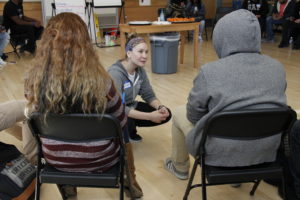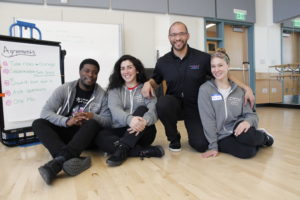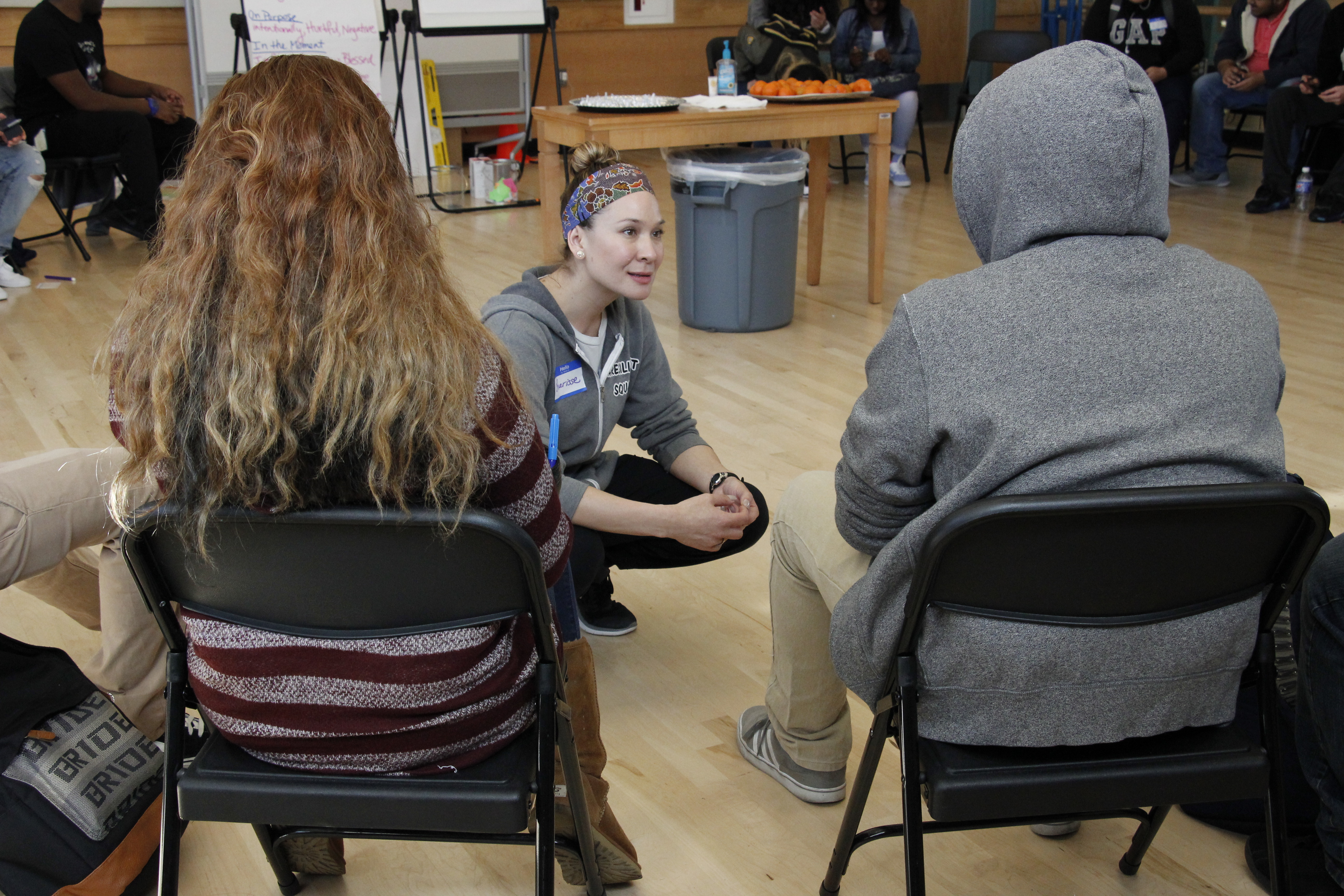Kaiser Permanente Northern California Educational Theatre’s new resiliency workshops aim to help high school students better cope with stress and adversity

When it comes to mental health, the middle and high school years can be tough on any teenager.
The National Institutes of Health reports 25 percent of 13- to 18-year-olds experience anxiety that negatively affects their day-to-day living, and more than 13 percent of 12- to 17-year-olds reported an episode of major depression during a one-year period in 2015.
For some students, the situation is made worse by the added trauma of violence, neglect, substance use, or homelessness. That’s why Kaiser Permanente Northern California Educational Theatre launched a series of four resilience workshops for high-schoolers, piloting them in nine high-needs communities since September.
“We made a decision to work deeply in carefully selected communities,” explained Regina Dwerlkotte, Kaiser Permanente Northern California Educational Theatre director. “Our workshops are designed to serve students who have experienced trauma by helping them to cope with stress, build life skills that support social and emotional wellness, and create a supportive community.”
Communicating Better, Reducing Stress
Each of the four sessions is led by a team of three Kaiser Permanente teaching artists known as the Resilient Squad. The sessions last between 60 and 90 minutes and include a variety of activities including role-playing to practice better communication with peers and parents, mindfulness exercises for relaxation and focus, and group discussions to share stress-reduction ideas and tools for wellness.
The teaching artists also help students identify one or more trusted adults who they can turn to when they’re feeling particularly high levels of stress — a factor that can make the difference between a teen successfully coping with adversity, or not.
‘Tools of Positivity’

Last month, Educational Theatre brought the workshops to Sylvester Greenwood Academy, a school in Richmond for students who are at risk of not graduating high school. Kaiser Permanente also funds and partially staffs a school-based health clinic there.
Many of the 30 students seated in a circle for the final workshop had their cell phones out. Instead of asking that they put them away, teaching artist Johnathan Williams encouraged everyone else to take their phones out, too.
“I want you to find two photos on your phone,” Williams said. “The first should be of something that you love, and the second — something that inspires you.”
Williams listened carefully as students described photos of people they love, some recently deceased, and hobbies that inspire them. He then encouraged everyone to use their photos and their phones as “tools of positivity.”
“Fill it up with love, and inspiration, and motivation,” he said. “If that’s the first thing you see in the morning, then the start of your day should be cool.”
Getting Through Day-to-Day Struggles
The photo exercise is one example of how the workshops meet students where they’re at to offer them tools they can use in their daily lives.
During the exercise, 16-year-old Khadijah Robertson chose a photo of her two brothers; her younger brother almost died at birth.
“My mom had him early, and they gave him a 30 percent chance of survival,” she said. “Looking at a picture of him just makes me want to try harder every day.”
Robertson added that she feels the workshops could help teenagers “get through day-to-day struggles.”
Student and teacher evaluations of the program echo Robertson’s experience. Teachers reported that the workshops promoted courage and critical thinking.
Educational Theatre Program Coordinator Brendan Simon said students reported experiencing closer school friendships and learning important life skills.
“They’re realizing that they’re not alone,” he said. “And that they have tools and resources that can help them handle the high levels of stress in their lives.”
Authored by Dolores Radding, senior communications consultant, Kaiser Permanente Northern Region




